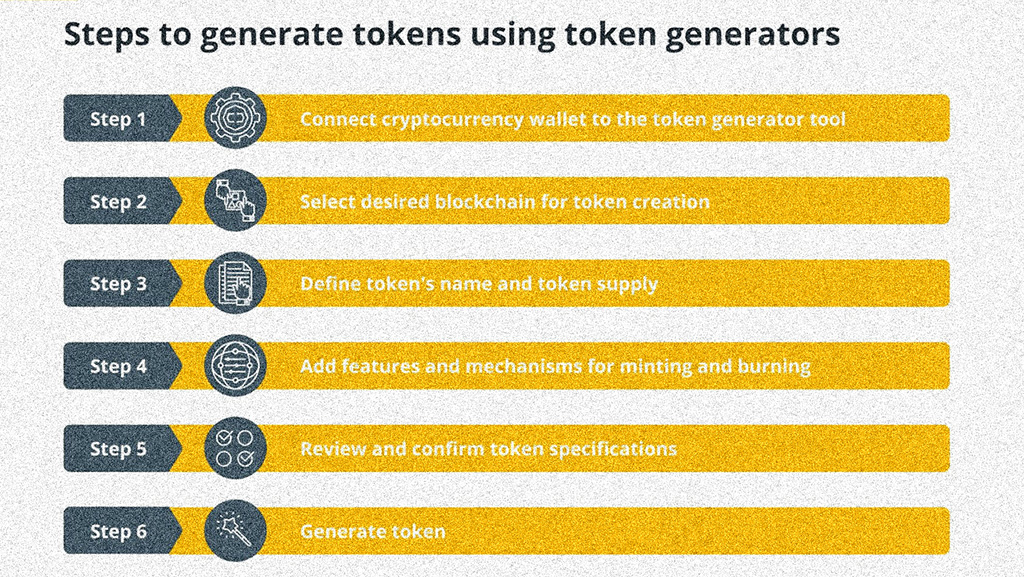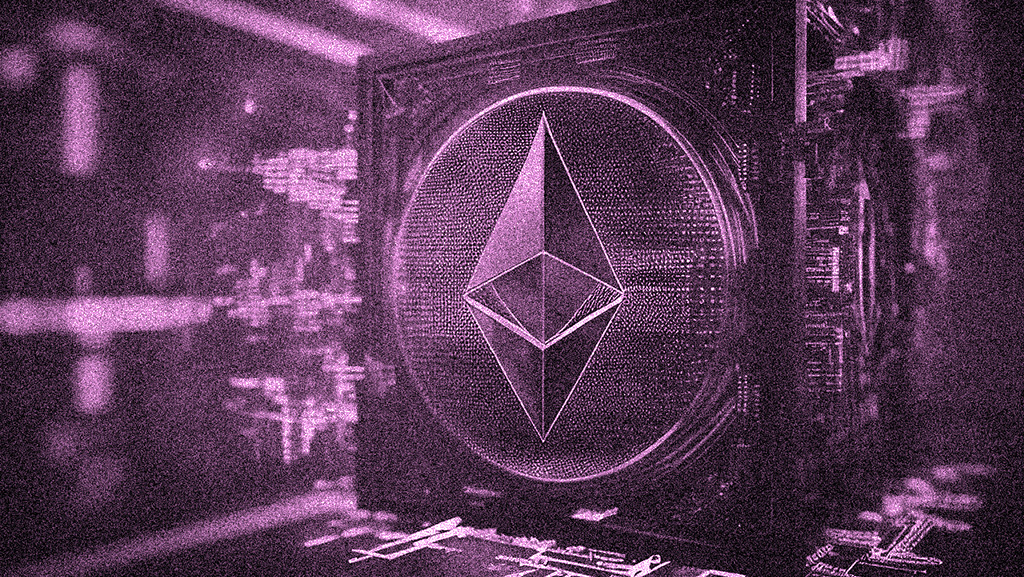What Exactly Is A Token Maker, And How Does It Operate?
At its core, a token maker or token generator tool is a specialized software designed to facilitate the creation of cryptocurrency tokens.
Tokens serve as representations of various assets, spanning from digital currencies and virtual commodities to loyalty points and even tangible assets like real estate or artwork. Furthermore, tokens can be engineered to grant access to decentralized applications (DApps) or deploy token-based smart contracts.
So, what precisely is a token maker?
In essence, it streamlines the arduous process of coding, enabling virtually anyone to develop their own token and introduce a new cryptocurrency.
In the not-so-distant past, crafting cryptocurrency tokens demanded a notably intricate undertaking, exclusively accessible to proficient blockchain developers well-versed in blockchain programming. However, as technology advanced, no-code tokenization platforms, exemplified by TokenMint and CoinTool, emerged with innovative frameworks that equipped individuals with a penchant for cryptocurrencies to forge their own tokens.
These token generators, depending on the platform, possess the capability to generate fungible or nonfungible tokens (NFTs) compliant with specific token standards like ERC-20 and BRC-20. Beyond automation-driven token creation and management, they also offer users the authority to regulate certain parameters, such as token validity and even revocation when required.
To uphold the integrity and true randomness of the generated tokens, these tools typically incorporate an entropy source during token generation. Entropy alludes to the level of unpredictability, quantified in that an unauthorized actor or potential attacker must contend with when deciphering encrypted information.
Essentially, an entropy source constitutes an input mechanism on a computer that supplies random bits, heightening the challenge an attacker faces when attempting to access restricted information.
Deconstructing No-Code Token Generation:
Operational Mechanisms of Token Generators
Token generators simplify the tokenization procedure through automated processes while integrating tailored tokenomics and safeguarding privacy.
These tools streamline token creation through automated drag-and-drop functions, effectively dismantling the barriers to tokenization typically encountered by cryptocurrency enthusiasts lacking programming expertise.
Tokens symbolize specific utilities or assets, serving as digital representations of valuable entities that can be harnessed by blockchain-based applications. Based on the intended utility, tokens can signify either tangible or intangible assets.
Tangible assets encompass physically existent entities such as real estate, physical artworks, or precious metals like gold. Conversely, intangible assets encompass concepts such as licenses, ownership rights, loyalty points, or even voting privileges.
Historically, developers would fashion tokens by coding in a programming language compatible with the pertinent protocol. For instance, creating an ERC-20 token on the Ethereum blockchain necessitated the delineation of the token’s unique attributes, coding the smart contract, undergoing token testing, and validating its source code.

Clearly, a substantial amount of technical acumen was required to comprehend and implement the intricate process of digital token creation. However, with the advent of token generator tools, an individual can now create the same ERC-20 token in as little as ten minutes, all without any coding involved.
For instance, on the CoinTool platform, one would merely need to connect their cryptocurrency wallet to the application and initiate the token creation process on their preferred blockchain. This procedure entails a sequence of straightforward steps such as naming the token, specifying the token supply, and incorporating features and mechanisms for minting and burning tokens.
A Spectrum of Cryptocurrency Token Types
Cryptocurrency tokens broadly fit into four primary categories: security tokens, utility tokens, tokenized securities, and currency tokens.
Security tokens epitomize specific investments, encompassing elements like voting rights or shares in a company or centralized entity. Alternatively, they might encapsulate other valuable underlying assets or utilities, whether tangible or digital. These tokens can be imbued with various ownership rights and distinctive characteristics.
Utility tokens grant access to products or services rooted in blockchain technology. These tokens may also underpin a network’s consensus mechanism, as seen in proof-of-work and proof-of-stake systems. Their applications extend to covering transaction fees or conferring voting rights within decentralized autonomous organizations.
Tokenized securities, distinct from security tokens, denote digital representations of actual securities like bonds, investment funds, or equity. The primary objective is to enhance a security’s liquidity or market accessibility. Generally, these tokens lack unique attributes or cryptographic features.
Lastly, currency tokens are devised to operate as tradable and spendable digital currencies. While certain currency tokens might be asset-backed, many remain unlinked to tangible assets. The intrinsic value of these tokens hinges on the underlying blockchain network and its distribution mechanism.
Upsides and Downsides of Token Generators
Token generators garner praise for their convenience, security, and affordability, yet they might sometimes lack the complexity needed for intricate smart contract applications.
Foremost among the advantages of token generators is their convenience and cost-effectiveness. Engaging a blockchain programmer to code a smart contract is unnecessary, particularly if one utilizes a reputable token generator platform. This process can also exhibit heightened security and efficiency when employing a trustworthy token maker.
However, token generators also bear several drawbacks. Their plug-and-play nature might curtail customization and omit features inherent in more intricate smart contracts. Moreover, certain platforms could levy substantial fees for their services or necessitate payments for specific assets.
In summary, token generators prove exceptionally valuable tools for entrepreneurs and developers seeking rapid and secure digital token creation. As the cryptocurrency landscape continues to evolve, these tools are poised to become more user-friendly and secure in the foreseeable future.
Key Criteria for Selecting an Apt Token Maker
Selecting an appropriate token maker hinges on considerations such as security, feature richness, and reputation.
Making an informed choice in token maker selection is crucial to the success of token creation endeavors. Primarily, the chosen token generator platform should hail from a reputable source rather than an ephemeral entity on the internet with dubious technical credentials. Prior to committing to a platform, thorough research and scrutiny are advisable, along with perusing user reviews for additional
insights.
A robust token generator will offer a diverse array of features, encompassing token expiration, burning, minting, and blacklisting capabilities. Furthermore, the tool’s cost and user experience warrant attention. Evaluating the fees and degree of customization permitted, if any, in alignment with your budget and needs is essential.
Lastly, an effective token generator prioritizes security and periodic updates by its developers. Seek platforms that facilitate bug reporting and exhibit a consistent update schedule, indicative of proactive maintenance and upkeep of the decentralized application (DApp).
Token Maker Platforms in Action
Several token maker platforms exist to aid in token creation:
CoinTool: CoinTool allows the generation of various tokens, including ERC-20 and BEP-20 tokens. Users can extend their token creation to networks such as Solana, Polygon, and Avalanche. The platform boasts a drag-and-drop interface for token creation, along with supplementary features like NFT creation, contract auditing, and a gas price index.
TokenMint: TokenMint, developed by Horizen, facilitates the crafting of fungible tokens replete with customized tokenomics within a fully transparent environment. The platform underscores enhanced privacy and security. To employ this generator, one must first download the Cobalt wallet and fund it with the Horizen (ZEN) cryptocurrency to cover token generation fees.
Create My Token: This platform empowers users to create BEP-20 and ERC-20 tokens without necessitating coding skills. Interaction entails linking a MetaMask wallet, customizing token details and features, and then deploying the token. Gas fees apply.
In essence, a token maker serves as a user-friendly conduit to the realm of tokenization, bestowing the capability to create digital tokens promptly and securely. As the cryptocurrency domain evolves, such tools are poised to advance in intuitiveness and security.



